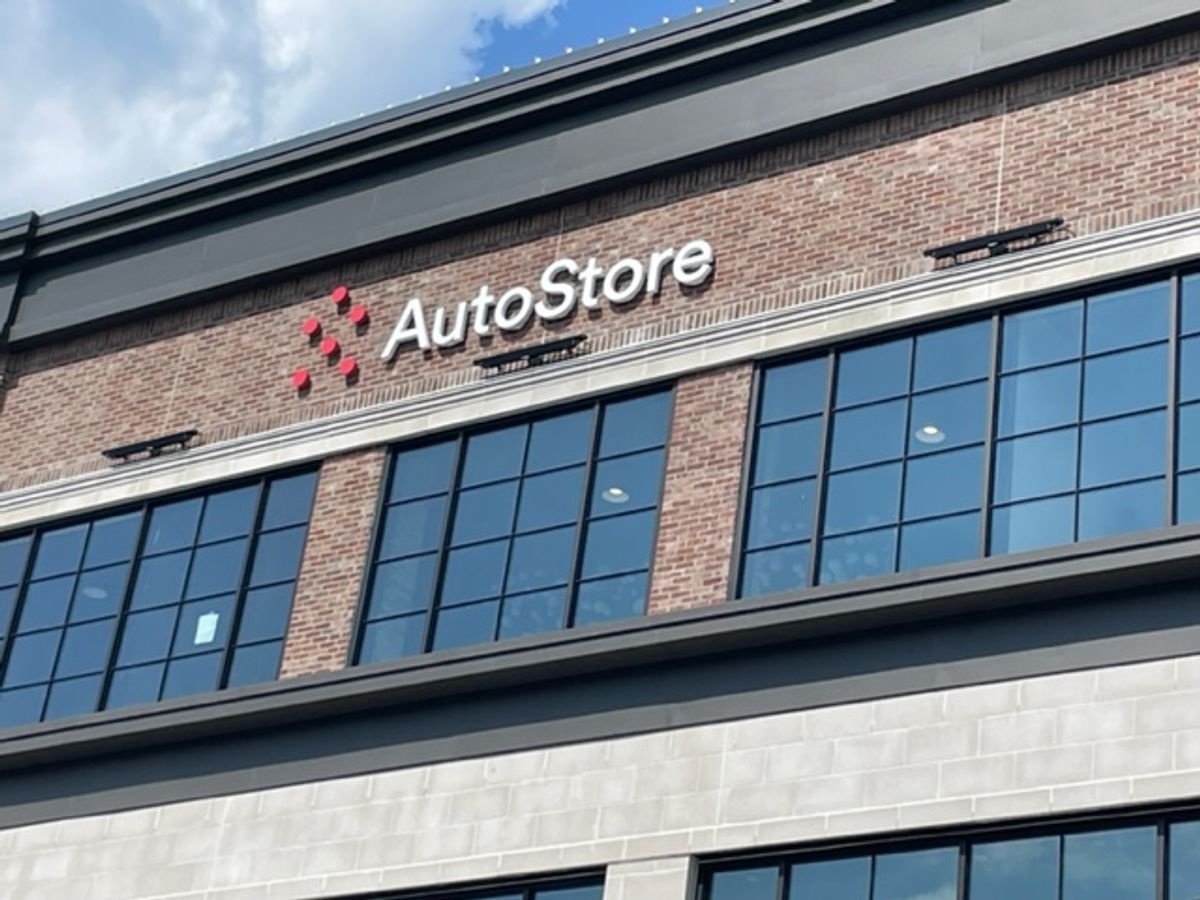Norwegian warehouse automation company AutoStore opened its new U.S. headquarters this week with a ribbon-cutting ceremony that drew a crowd of roughly 100 employees, business partners, and local officials. The high-tech company moved to the 40,000 square-foot facility in Salem, N.H.—less than 10 miles from its previous base in Southern New Hampshire—earlier this spring.
“This opening marks our continued focus, commitment, and investment in the North American market,” Anette Matre, AutoStore’s chief people and information officer, said in welcoming attendees to the event.
The new building is double the size of its former space and adds state-of the-art training and demonstration facilities where AutoStore can host prospective customers and business partners. More than 30 sales, customer service, and marketing professionals work at the facility now, with plans to expand to around 100, according to John Schechter, the company’s vice president, North American business development.
The headquarters is located about 30 miles north of Boston, with easy access to airports and a high-tech talent pool that form the ideal base for the global company to serve its North American customer base, Schechter added.
The facility also serves as the home for AutoStore Academy, which provides hands-on and virtual training, and an Experience Center that showcases the company’s automated storage and retrieval system (AS/RS). The cube-based modular system uses rolling robots to provide retailers with a solution that accelerates order fulfillment, maximizes warehouse space, and improves operational efficiency. The Salem facility features various aspects of the custom-designed system in action, including a full-size system with a grid that spans the second and third floors of the building.
Commenting on the AutoStore Academy and Experience Center, Matre added that “ … being bold and ambitious runs in our DNA. And we firmly believe this Experience Center is a manifestation of that. If our ambitions come true, this area and Experience Center will be a melting pot for growth, creativity, collaboration, new innovation, and for staying bold.”
Since its founding in 1996, AutoStore has provided more than 1,450 automated fulfillment systems across 54 countries, including more than 200 systems with 17,000 robots operating in the U.S. alone for brands such as Puma, Gucci, and Best Buy.
The company has more than 65,000 robots deployed and working around the world, officials at the ribbon-cutting ceremony said.

AutoStore employees and business partners, together with local representatives and media, marked the grand opening of the tech firm's new U.S. headquarters in Salem, N.H., Tuesday.















